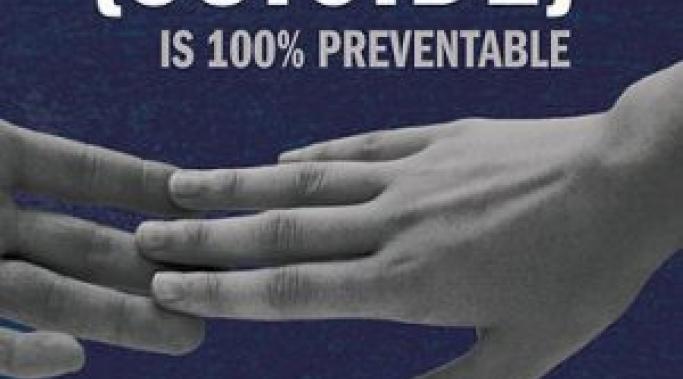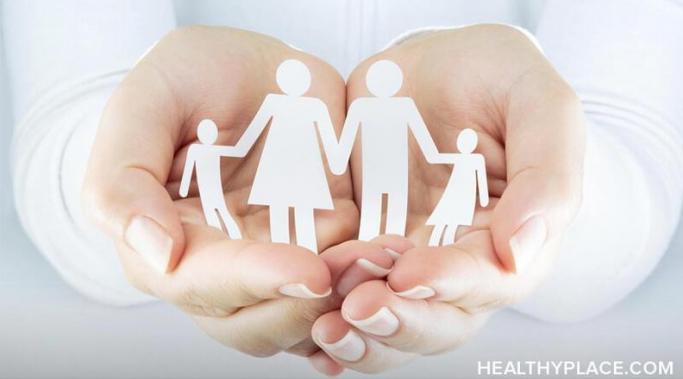Recently, one of my search referral logs revealed the question, “Can I Become a Doctor if I Have Attempted Suicide?” This is a very specific question and I’m afraid I don’t have the technical answer to it on my site.
But the question itself saddened me. Mostly because someone would think that they couldn’t become a doctor just because of a suicide attempt. A suicide attempt should neither limit how people see you nor how you see yourself.
Coping
“I hate wait.” – Inigo Montoya, The Princess Bride
I hate waiting rooms. I know this hardly makes me unique, but I suspect my hatred is more pronounced due to the amount of time I spend in them. Stale magazines. Old furniture. “Art.” Institutional beige walls.
Ick, ick, ick.
I have had chronically on-time doctors and chronically late doctors but no matter what, somehow, in a waiting room, it feels like your life is wasting away.
It is a sad reality that life is full of things we don’t want to do and mentally-different or no, this is something with which we have to deal.
And it’s even sadder to know that people with bipolar disorder and other mental illnesses have a much longer list of things they don’t want to do than the average person. And, of course, ironically, the mentally ill are typically the least-equipped to deal with such things.
But beating bipolar disorder, or any mental illness, means doing what you don’t want to do, pretty much all the time.
Have you ever noticed that when you spend time around someone who’s in a great mood it often lifts your mood up too? Similarly, if you spend time with someone who is really down, you feel less happy? Part of the reason for this is mirroring. It’s the concept that we image back what people show to us. Human see, human do.
So how can we use this idea to our advantage when we’re depressed?
Recently I wrote about how people tend to ignore suicide threats online. And one of the reasons people ignore these threats is because they don't take them seriously. Some people even believe that suicide threats are just a cry for attention.
Recently suicide threats are on my mind as I had to deal with a very serious one last week on Facebook. There are two things that shock me about suicide threats online:
People usually ignore them.
Some (depraved) people actually egg the suicidal person on.
Now, I won’t go on about how deplorable it is to egg on another person’s suicidal ideation or threat, but I do want to discuss why people ignore suicide threats.
Self-esteem is a funny thing. I think we’re all born with it but somewhere along the way it gets damaged for many of us. Self-esteem is simply: “a realistic respect for or favorable impression of oneself; self-respect.” And yet many of us feel pretty much the opposite. We feel an unreasonable disrespect or unfavorable impression of ourselves.
And mental illness may be one reason why.
Recently a commenter talked about how she felt taken advantage of by a loved one who had schizoaffective disorder. This particular individual seemed to take a lot from his family and gave nothing in return. He refused to shower, help out around the house, pay for anything and would eat out at restaurants with no money and then insist his family come down to the restaurant and pay for him.
The person with schizoaffective disorder was being medically treated and the loved one felt that he was just manipulating the people around him.
Now, I can’t say what the motivation was in this scenario, but certainly, this commenter is not the only one to have found herself in that situation. So the question is, is mental illness an excuse for bad behaviour?
When people realize they have a mental illness like bipolar disorder or schizophrenia, one of the first feelings they have is fear. And there’s a lot to be afraid of. There are the treatment, doctors, symptoms, side effects and then there’s the illness itself. It’s completely reasonable to feel scared in that situation.
And in that moment, or possibly in a moment shortly thereafter, the fear of abandonment becomes a reality. A very reasonable and realistic fear is that people will abandon you because of the mental illness.
Now, of course, no want wants to be bipolar, but people do make the conscious decision to admit to their bipolar disorder online. There are many reasons to do this but often people want to be able to express themselves in catharsis or reach out for support. These are perfectly good reasons.
But, unfortunately, that decision is not always met with understanding and support. In fact, sometimes it’s met with vicious hatred.
Not long ago I was in touch with someone newly-diagnosed with bipolar disorder who had started a blog to express his feelings on it. He was just an ordinary guy trying to do his best to make sense of the senseless.
And what happened? Quite simply he was attacked on all sides from the antipsychiatry crowd. Somehow they found him, zeroed in on him, and hounded him with hatred until he slinked off of Twitter altogether.

![MP900390462[1]](/sites/default/files/styles/blog_listing/public/uploads/2012/08/MP9003904621.jpg?itok=HZscWK6h)







